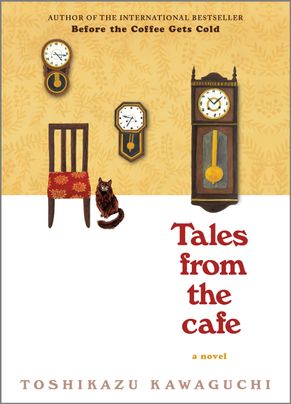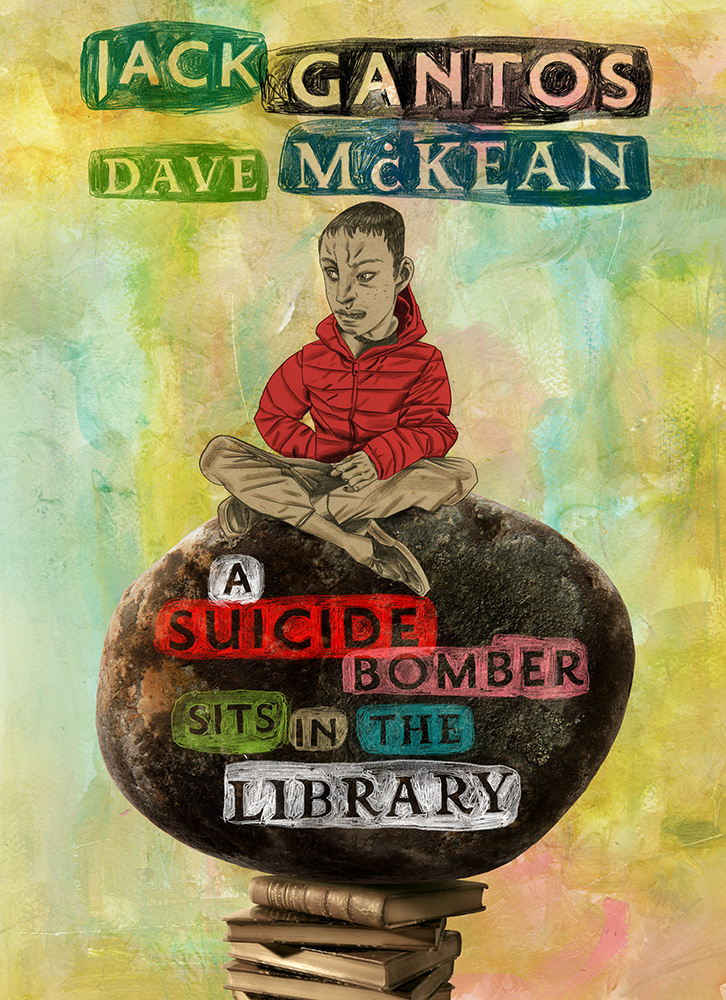During the early days of the pandemic James and I read Kawaguchi's book Before the Coffee Gets Cold which told of a coffee shop (Funiculi Funicula) that allowed customers to time travel, as long as they returned to the present "before the coffee gets cold". There were other quirky rules to follow as well, including where a would-be time traveler could sit - only in a seat otherwise occupied by a ghost. The ghost (aka the woman in the white dress) sits all day and reads, except for one daily trip to the toilet (why a ghost needs to use the bathroom is a question asked, but not answered). It is during this brief window each day that someone else might get a chance to time travel. I did not blog about this thoroughly enjoyable book when we read it because, alas, it had no libraries.
Tales from the Cafe has more stories from café Funiculi Funicula with this important change to the set up
Until a couple of years ago, the woman in the dress read a novel entitled Lovers over and over again. One day, Miki remarked, "Doesn't she get bored reading the same novel?" and presented her own picture book to the woman in the dress.
This led coffee shop employee Kazu to the idea that she could provide new reading material to the woman in the dress with regular visits to the library. The woman in the dress accepted the fresh books, but without ever any acknowledgement of gratitude. Nevertheless Kazu continues to go the library once a week.
Both this book and Before the Coffee Gets Cold are episodic, with a unifying storyline.
A book about finding happiness.


